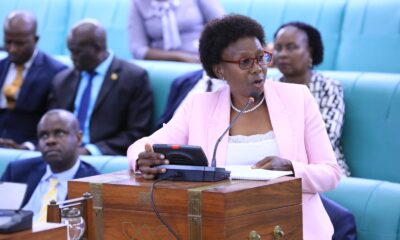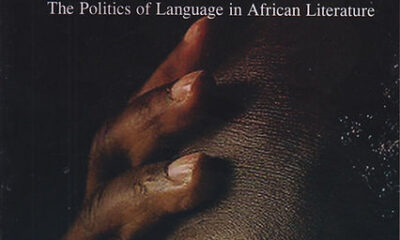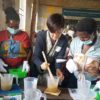Editor
Government should mind more for the disadvantaged children
The story of teenager Pasca Adong from Kaabong, in the Karamoja sub-region, is very instructive. It denotes a number of issues of national significance that impact on citizens’ lives.
To recapitulate: last year Adong dropped off from Secondary school in Senior Three because of lack of fees. Her bread-winner father died leaving her mother, who is only half-able to provide for her. So for one term of Senior Four, Adong joined her mother in cultivating sorghum for use to brew marwa to raise the fees. But this is only for a season; Adong has dropped out again to repeat the process for the final term.
Meanwhile, a pack of idle suitors are yapping for the 19-year-old’s hand in marriage. They are not interested in her future to study for and get a job to help that same community. It is a dire and frustrating condition – indeed!
This young girl’s narrative touches on a number of policy issues. The Ministry of Education is of the immediate impact. Adong herself says that there are less deserving children in Kaabong who have got access for the help of fees, which she herself qualifies for, yet she has not got it. Failure to help Adong and the children of her ilk is an injustice.
The men who are baying for her show a lack of seriousness that has crept into our societies in the last generation. It is of moral decadence to the effect that the people are losing a decent direction. Any number of institutions should come in to address this pervading fall from grace.
Through this kind of abandon, one finds that matters of health creep in. It is not far-fetched to claim that had Adong to capitulate to these undirected sexual advances, she would probably land in as a candidate, not for O-Level pursuit, but as an HIV/AIDS case. The health statistics indicate that young girls are in a higher bracket as the victims of the pandemic. Again, the remedy for this is social sensitization.
Then, there is the case for marwa brewing. Quite obviously, this is the setting where Adong is vulnerable to sex suggestiveness. Equally, as important, is the issue of growing sorghum. As much as this activity is partly beneficial to Adong and her mother, it is clearly inadequate. It takes a whole season of not less than three months to raise just UGX 125,000 necessary for the term’s fees.
If the people in Kaabong had a better agricultural means to cultivate more than sorghum; and for other benefits other than marwa-brewing, it goes without saying that they would be in a position to finance the social services useful for their survival. Certainly, in this sector, Agriculture would come in handy to institute other crops that give a bigger value.
All in all, these tribulations of communities, such as the one Adong is in, are taking place within the ambit of politicians who are deceiving the people that they have the people’s livelihood at heart. As Alan Paton put it: Cry the Beloved Country!
Comments



























